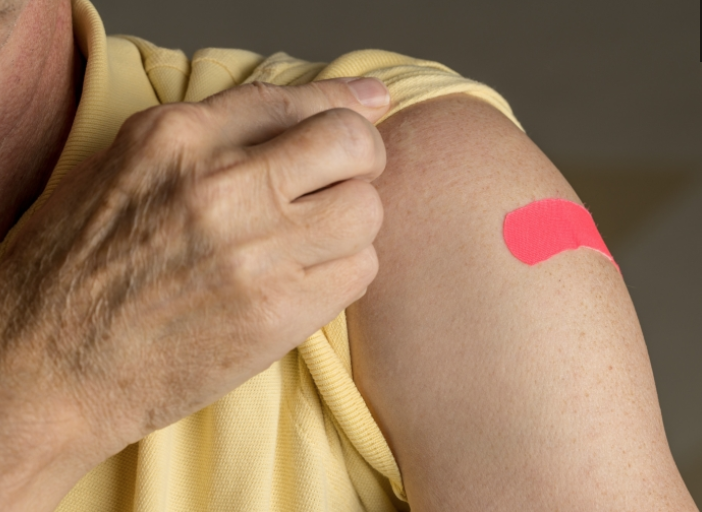
Seniors may remember a time in their childhood where they stayed home from school and away from other children for a week or so. They were told “don’t scratch or you’ll get scars!” They may have been forced to take an oatmeal bath or wear mittens to prevent scratching. This was common for every child who got Chickenpox, or Varicella. Chickenpox is caused by the varicella-zoster virus (VZV) and is a very mild disease. However, once one contracts chicken pox as a child, they are at risk for developing Shingles, or Herpes-Zoster, later in life. That is when the threat is higher.
Shingles occurs because the VZV stays in the body even after recovery from chicken pox. The virus stays dormant then reactivates when something triggers it, causing Shingles. The duration and intensity of Shingles is far worse than Chickenpox. Shingles can last 3-5 weeks while Chickenpox only lasts about 1-2. The lesions in Shingles are often bigger and cause more severe pain. Both are highly contagious but an individual with Shingles cannot pass it on to just anyone. A person with Shingles can pass the virus on to someone who has not been exposed to Chickenpox.
The population most at risk for developing Shingles are those over 60 years old. Many seniors who develop Shingles are already immuno-compromised so it makes the risk of the disease even greater. The after-effects of the disease can be detrimental. Some may develop issues such as neuropathy, postherpetic neuralgia, fasciitis, hearing or vision loss, encephalitis, vertigo, trouble sleeping, depression, anxiety, and other associated symptoms. Postherpetic neuralgia results in chronic pain caused by damaged nerves and is the most concerning long-term effect that can develop.
Luckily, there is a vaccine called Shingrix that helps to prevent one from developing Shingles and it is highly recommended for those over the age of 50 and who have had Chickenpox before. If one does contract the disease, there are also anti-viral medications that can ease the symptoms, shorten the time the disease is active, and may even lessen the chances of later developing post herpetic neuralgia. It has also been known that steroids can also help with the severe pain associated with the disease.
If one does develop Shingles, it is important to isolate as much as possible. The National Institute of Health recommends that they get plenty of rest, avoid stress, take an oatmeal bath or use calamine lotion, and wear loose-fitting clothing.
WellPath Partners is your senior resource referral guide. Follow us on ALL social media platforms and join us weekly for more content and public health discussions.
By: Leila Lagandaon
Placement Coordinator at WellPath Partners
B.S. in Health Science, California State University, Long Beach
